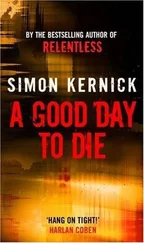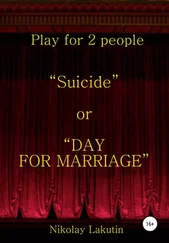During his graduate school summers, Tom drives to Los Angeles, finds a hotel on the beach, and walks for days searching. He picks up tiny top shells and small-ridged clamshells and carefully places them in his pocket.
In late afternoon, Tom sits on the pier. He recognizes that all ports are mythical and primal. It’s the beginning of time and oceans don’t have permanent names. It’s before the Silk Road. Women are routinely abandoned near wharves. They’re collateral damage from an intrigue gone astray.
His mother wasn’t born in Manitoba. She came from a village on a delta where fields are fertile with sunflowers. Barges brought spices, statues of new gods, perfumes, mirrors, and capes made from the feathers of jungle birds. His mother became a woman of the wharves. When they’re hungry, the women rip barnacles off pilings with their hands and eat them raw. They knock their teeth out and their fingers bleed.
Tom saves the seashells in his box of mementoes where he keeps the card his mother tapped to the refrigerator, the banana bread recipe with Going to New Mexico written in her hand . He also keeps the postcards of where he’s been.
Tom thinks his mother is also walking on boulevards and beaches, examining postcards, studying angles of light and shadow. There are questions of dusk versus sunset, and how to distill the details. She’s not satisfied with a sunset lacerating the sky and the waves below bluffs stitched with palms.
Tom knows there’s a treacherous complexity in sorting stylized images, condensed and tamed. His mother recognizes the conventional but it’s without thrill. It’s overly familiar, simplified and false. When his mother finds the right postcard, the one that explains everything, she’ll send it to him.
He visits laboratories the size of walk-in closets where post-docs sleep on the floor under saddle blankets. Experiments are monitored every three hours. They hire six assistants for each position. They wait to see who survives.
He interviews for a job at a Swiss pharmaceutical. He can tell immediately that he’s not who they want. It’s like a chemical reaction. When he mentions cloning and mapping the genome of a virulent cotton fungus, the men wince.
Captain plays poker with R&D guys from Monsanto and arranges an interview for him. His appointment is at 2. They don’t call him until 4:45. Three men sit at a long mahogany table. The older man gestures to a low metal folding chair. Tom sits there. When he mentions growing protein crystals for X-ray and computer modeling, the two younger men immediately leave the room.
The older man says, “I’ve got to get the phone.”
There is no phone. Nothing is ringing. Tom is paralyzed, waiting for clarification or an explosion. Two minutes pass. His organs are leaking out, and he presses his hand to his gut. Another minute pass. Tom picks up his briefcase and makes his way out of the building.
Captain calls from JFK on his route to Seattle. He has a cell phone but doesn’t use it. He prefers the random and increasingly rare phone booths he finds on highways and on the edges at airport terminals. He’s made the final table at the World Championship of Poker in Las Vegas. Girls in high heels and bikinis carry out trays of cash. He finally won a championship bracelet. Captain has a blog and he’s interviewed on ESPN. Now he’s invited to private games and picked up by limousines.
“I just played some guys from Du Pont,” his father begins.
“Did you win?” Tom is alert. He’s interested. He’s at full attention.
“I got hot cards,” Captain says.
Their conversation is how they embrace. They talk sporadically, and at Captain’s discretion. His father demands thousands of miles of suffocating mist, gutted nests finches left and mountain ranges to form a barricade between them.
“Listen. I talked to their R&D boys. Biochemistry is strictly 20th century. You missed virtual reality and A.I. Better transfer to med school,” Captain advises.
He doesn’t congratulate him on his doctorate. He didn’t come to graduation either. Tom’s accomplishments are too trivial for a comment or handshake.
“I appreciate your concern,” Tom manages.
“You’ll wind up an assistant professor at a bankrupt shithole. Broken equipment and no budget,” his father actually raises his voice. “Get off Lincoln Street, kid.”
His father telephones when he has time on his hands. It might be a break in a tournament, a plane delay, or a bout of insomnia.
Between them hay is spooled on the edges of fields of pumpkins. There are roadside cemeteries of corn stalks and piled husks. A bloated post-harvest moon rises and consumes the sky.
His mother goes underground, underwater. There’s a language for this, fluid syllables of rain and thunder and damp chimes. It’s a local dialect of tinny trinkets and obscene bells in corridors of mirrors with lightbulbs that sting and all of it is repeated in glass, in glass, in glass until she is lost.
His father calls back. His plane must be delayed. “I can get you into Cornell. It’s not too late,” Captain tells him, his tone urgent. Then he abruptly hangs up. They must have announced his Seattle flight. Tom feels slapped.
Horace Bowen telephones a week later. “I have bad news, son,” his grandfather says. There is an overly long pause. It’s a silence with lead in it. It’s a metal vestibule. “Captain’s dead. Funeral’s on Friday.”
Thomas doesn’t ask what happened. Maybe Captain was ambushed by rabid raccoons. Or PETA sent assassins. He is still angry.
The cemetery is surprisingly crowded. He instinctively searches for his mother. She isn’t there. He’s found 60 Bowens in Manitoba. None of them have come. But the sheep and goat farmers from the pasturelands are here in their church clothes. And all the dairy farmers, the mayor, and president of the Democratic Club. The head of the county health office and her assistant have brought a wreath. The new young doctor from Colorado, probably working off med school debt with two years of rural service, offers his condolences. Mrs. Rakov, the librarian, asks if he’s seen his mother. She remembers her; of course, no one could forget her.
Thomas recognizes two CON PA lawyers in black suits and red ties taking notes. They’re no doubt on assignment, making sure no student pet abusers are posthumously charged. Men in jeans, baseball caps and sunglasses lean against the fence at the back of the cemetery. Town cars are parked on the street. Thomas assumes they’re poker colleagues.
His neighbors from Lincoln Street stand near his father’s grave. Mr. Brody, the retired math teacher who lived next door, pushes his walker across grass. He pats him on his shoulder. Phil Cossink, the pharmacist, with his added-on sunroom and attic turned into a playroom for his three children has come with his sons. They’re college students now and wear suits. His wife reminds him that she brought him Christmas dinner in a blizzard when he was alone.
A developer places an arm on his shoulder. The stranger has a ruddy face and he’s breathless. His father’s property up to 5 Hawk Creek was sold at auction. The developer plans to build 40 Cape Cod houses with swimming pools on 30-acre parcels.
“I respect natural environments.” He is hearty, almost festive. “I’m not considering blading.”
That means he’s going to chop the forest down. Thomas turns his back and walks away.
Sheriff Jim Murphy, in his black dress uniform and white gloves, stands at his side, their shoulders brushing. Thomas notices Jimbo is wearing his purple heart. He hasn’t seen it before. The velvet is vibrant and George Washington is depicted in the center in gold. No clergy preside. There are no eulogies.
The sky is the brilliant untarnished blue of intelligence, prophecy and magic. It’s the sky of an earlier time when brutality was confined and sporadic. The cobalt sky is naked, not a blue humans know, but the blue of tapestries, epics, and cities still bearing their ancient names. Syracuse, Ithaca, Corinth and Thebes.
Читать дальше






![Джон Харгрейв - Mind Hacking [How to Change Your Mind for Good in 21 Days]](/books/404192/dzhon-hargrejv-mind-hacking-how-to-change-your-min-thumb.webp)





